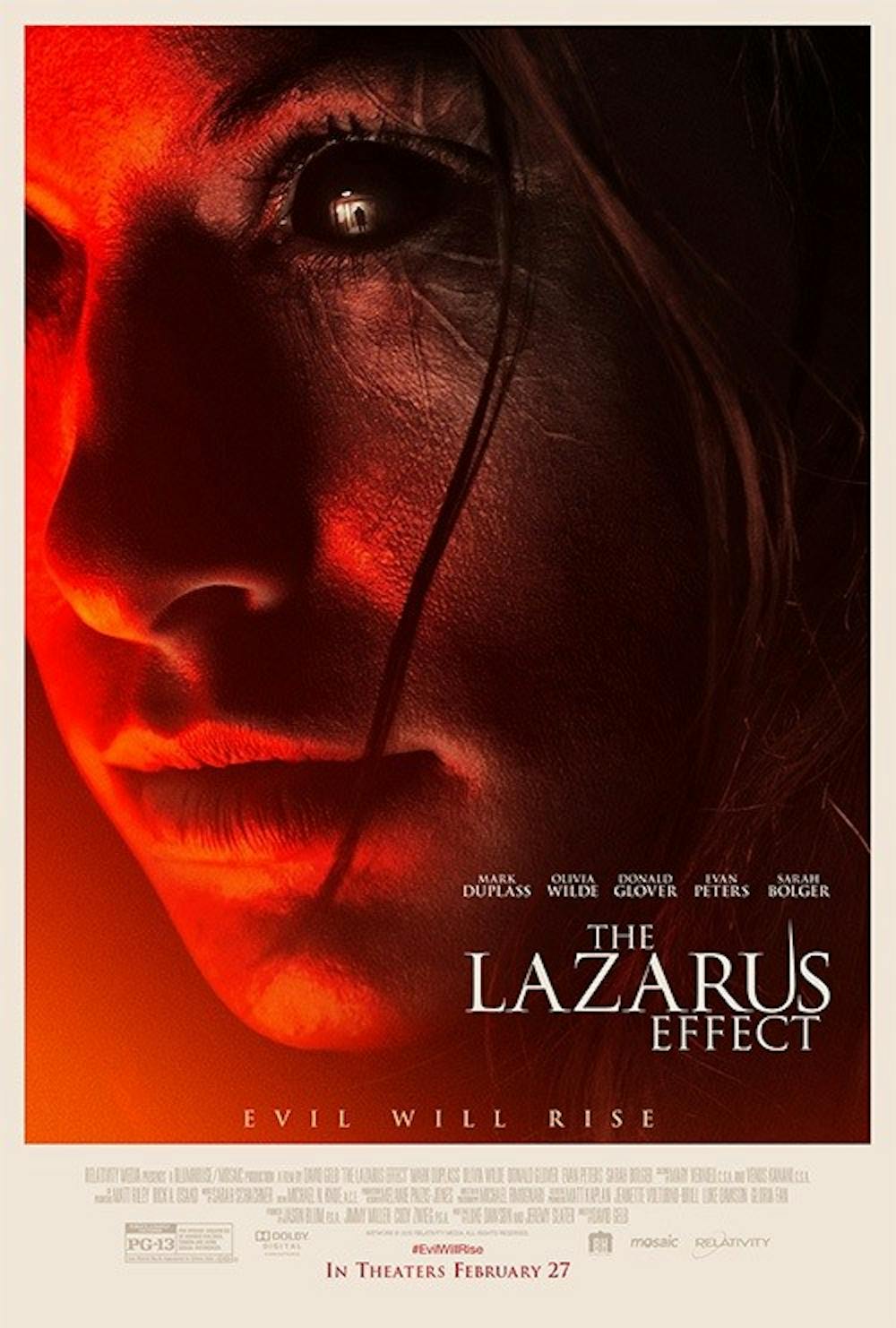The best thing about “The Lazarus Effect” is its sinister opening sequence. Grotesque shots of mysterious, oozing compounds bubbling in petri dishes and swirling through centrifuges set the stage for creepy laboratory antics to follow. The scene squarely places the film within the present day, thus shedding some of the baggage that comes with the cinematically tired idea of the undead. Unfortunately, the film falls far short of reimagining its topic, resulting in thoroughly un-scary fare that does not live up to its conceptual potential.
As “The Lazarus Effect” follows a team of young, attractive scientists through several days in their inexplicably decked-out laboratory, it comes surprisingly close to asking some legitimately profound questions. When an experiment goes horribly awry, and the team ends up using their life-giving serum on one of their own (Olivia Wilde), she comes back to Earth having already seen the afterlife. On the cusp of exploring the nature of faith in a world where science has provided all the answers, the film instead chooses to devote its latter half to predictable bumps in the night and death by crushing.
Horror movies can and should be smart. If “The Lazarus Effect” had not shoveled horror cliches — little girls in hallways, bad cell phone reception and cut phone lines, creepy dolls and power outages repeated ad nauseum, to name a few — on top of its unsettling premise, it could have been terrifyingly relevant. Granted, the little girl in the hallway was one of at least two nods to Stanley Kubrick’s “The Shining,” along with a red rubber ball ominously entering the frame to signal danger. However, this film had no place alluding to a masterpiece of psychological horror. The content of these shots was recreated without Kubrick’s striking symmetrical composition and, like the rest of the film, fails to build suspense visually or thematically.
For many, the primary draw of “The Lazarus Effect” is its somewhat unusual cast, with most of the core actors appearing in a horror movie for the first time. For some, Donald Glover’s involvement alone is enough to excite interest — although Glover’s performance was perfectly adequate, fans will be disappointed by the writing of his character, Niko. A cookie-cutter tech whiz, Niko resides in the unrequited portion of a poorly-developed love triangle — the resolution of which is “nevermind, she’s a demon now.” Additionally, anyone who has noticed Mark Duplass’ proclivity towards distinctive, intelligent projects will find that this one does not live up to his track record. In the end, the producer who decided to give this script the green light could learn an important lesson from it: trying to revive the dead rarely ends well.







